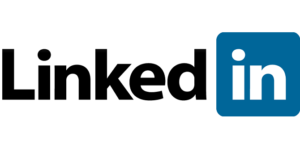
To ensure success in an interview, you need to be proactive in demonstrating that you meet the main requirements of the target job. To understand why, you need to know what typically happens in a company before it gets to the interview stage.
The interview is happening because a job vacancy has occurred due to either:
- Someone leaving (voluntarily or otherwise!); or
- Someone is being promoted; or
- The team is being expanded (more work, expanded scope, etc).
Either way, once the job vacancy is identified, it will be filled according to a process something like this:
The hiring manager (i.e. the manager who has a vacancy) wonders if there is someone he already knows who could do the job. If yes, then great! If not, he will ask his team and other internal managers if they know of someone. If yes, again great! But if not, the next step is to ask his wider network if they know of someone suitable (he will ask managers he knows in other companies; those he has met at conferences, seminars, meetings, etc; and people he knows socially or plays tennis with, etc).
This networking process frequently produces someone to have a ‘chat’ with – this may or may not be a formal interview, but either way, in the hiring manager’s mind, it is an interview to fill the vacant position. Even though the person has only been ‘referred’ to them, the hiring manager usually takes this as a ‘recommendation’. Unless there is something obvious that indicates the candidate won’t be able to do the job well, they will usually be offered it.
Without a formal job description and person specification, the hiring manager will ask questions based on the presented resume and about some of the key skills involved in the job. The decision will mainly be by ‘gut instinct’ on the basis of “I’ll know it when I see it!”
The result of such a process can be very ‘hit and miss’ from both sides. If the candidate doesn’t work out, the company has to go through the expensive process of finding a new person. For the candidate starting in the job, if they don’t have most of the actual requirements for the job – many of which may not have been articulated during the interview – the job won’t be a good ‘fit’ for them, and not only will they not perform well, but they won’t be happy in the job either.
If the networking process doesn’t produce a ‘suitable’ candidate, the job vacancy will have to be advertised in the newspapers or on job boards – or given to a recruiter in an employment agency. The recruiter will usually advertise the job, but will also conduct LinkedIn and Google searches – hence the value of having a LinkedIn profile and even a personal webpage.
For either to happen, the HR department are usually involved, and they will ask the hiring manager to create a job description and a person specification – they will offer to help with these, and with turning them into Selection Criteria.
This is a lot of work and hiring managers hate it! They already have too much work to do and don’t want to be bothered with something they have little expertise in. Even when completed, sometimes the job description and person specification are incomplete or not properly focused. When faced with this work, hiring managers often try to hold out until their networking eventually produces someone!
Whatever the process is that leads up to the interview, it has to go ahead. One or more candidates will be interviewed. And here is the problem – not only are many hiring managers not trained in developing job descriptions and person specifications, they are not trained in interview techniques.
So you as a candidate and interviewee need to help them. You need to be proactive and help steer the interview in the direction it needs to go – and that’s to demonstrate that you have the key requirements for the job and will ‘fit in’ to the team and company.
A following article will elaborate on how to demonstrate this.







